
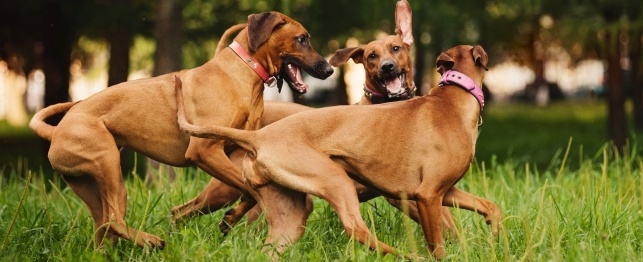
Dogs
Sarah loves playing tag with her pals. Charlie is happiest playing catch, while lazy old Beau prefers to stand on the sidelines.
This sounds like playground life anywhere, only these are dogs, not children, who romp in their local parks every day, and their numbers are growing from coast to coast. From Portland, Ore., to Portland, Maine, communities are carving out public space for unleashed dogs, and finding them as popular as the sites set aside for soccer and softball.
Dogs left alone all day are desperate for exercise when their owners get home from work. Running with other dogs off leash, wrestling with them and playing tug of war get these couch-potato pooches into shape, developing their muscle tone, agility and stamina. Better yet, after an hour of nonstop exercise, most dogs are too tired to chew the furniture or dig up the garden, so behavior improves as a result.
For solitary city or suburban pets, regular contact with friendly, healthy dogs pays off in several ways. Dogs are pack animals, and they learn from one another. At any dog park, there's a hierarchy in place, made up of the old-timers and mature dogs and then the newcomers and young dogs. The older dogs teach the younger ones what is appropriate behavior and what's not. Furthermore, pups who grow up playing with other gentle dogs tend to be well socialized; that is, comfortable around other dogs rather than fearful or aggressive.
But there's another facet to a canine play group's appeal, and that's the human connection. Just like parents meeting over the sandbox, dog people who might otherwise never cross paths swap training tips, share toys and celebrate birthdays – cementing friendships in the process.
For the first few years after moving from New York City to suburban Connecticut, Jane Birnbaum knew no one beyond her immediate neighbors. When she adopted Rags, her cocker spaniel, and took him to doggie play dates at a local field, she discovered a real sense of community. Now, if she goes out of town unexpectedly or works late, her dog field friends help out with Rags. If a personal problem arises, it's her pals from the dog park who provide support.
"For people who work, a dog play group is particularly important," says Birnbaum. "Rags looks forward to his evenings at the dog field, but it's also my time to wind down from the work day. After a while, it becomes more about the people than the dogs."
New to the dog park scene? Here are some guidelines:
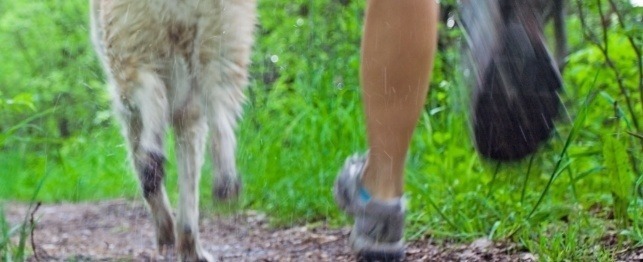 Does Your Dog Need More Exercise?
Does Your Dog Need More Exercise?
Does Your Dog Need More Exercise?
Does Your Dog Need More Exercise?
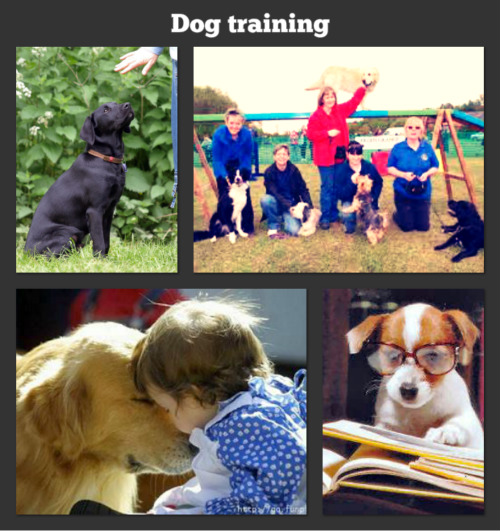 How To Use Vibration Dog Training Collars
All dogs need training at least, no matter how smart the do
How To Use Vibration Dog Training Collars
All dogs need training at least, no matter how smart the do
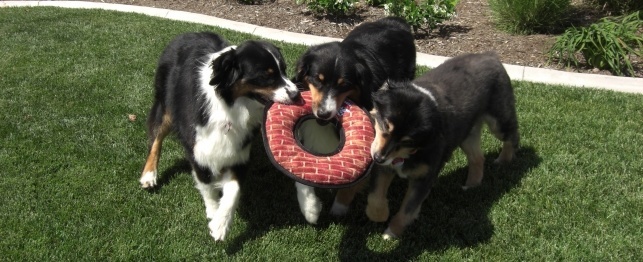 Playing Tug of War with Your Dog
Playing Tug of War with Your Dog
Playing Tug of War with Your Dog
Playing Tug of War with Your Dog
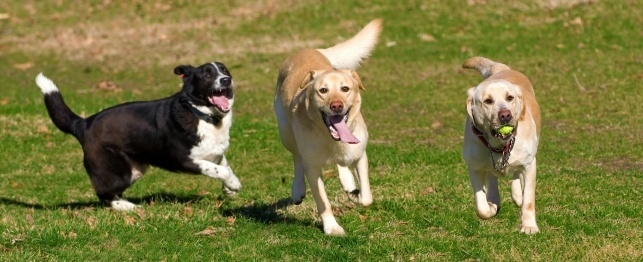 Tips for Keeping Your Dog Safe at the Dog Park
Tips for Keeping Your Dog Safe at the Dog Par
Tips for Keeping Your Dog Safe at the Dog Park
Tips for Keeping Your Dog Safe at the Dog Par
 Safe Chew Toys for Your Dog
Safe Chew Toys for Your Dog
Safe Chew Toys for Your Dog
Safe Chew Toys for Your Dog
Copyright © 2005-2016 Pet Information All Rights Reserved
Contact us: www162date@outlook.com